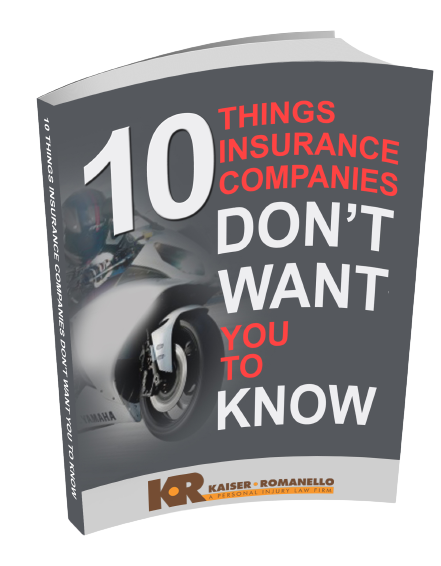For extremely serious vehicular accidents, you often do not have a choice as to whether you seek medical treatment or not. If you are incapacitated, paramedics will arrive to whisk you away to the hospital. But what if your injuries are minor enough that immediately seeking medical attention is not necessary? Or what if you don’t realize the extent of your injuries until later? You may ask, “Should I go to a doctor?”
Many car accidents cause delayed onset injuries. This is in part due to the human body’s response system to trauma. When you are involved in a collision, your fight-or-flight response system kicks in. Your body reacts to the sudden and unexpected crash with adrenaline. Adrenaline, combined with shock, gives you energy and makes you more alert so that you can protect yourself. They also act as numbing agents. Thus, you may severely underestimate the extent of your injuries because you aren’t able to fully feel them right after the crash. In addition, as part of the healing process, tissues and joints become inflamed and swollen, and bruising may develop. However, it often takes 24-48 hours after trauma for these tell-tale signs of injury to appear. You may feel fine when you go to bed, then wake up with horrific neck and back pain. Muscle, tendon, ligament, joint, spine, neck, chest, and brain injuries are commonly associated with delayed onset.
If you are overcome with pain or decreased mobility after your accident, it is imperative that you seek medical assistance immediately. Injuries can be easily exacerbated, especially if you continue to try to be active. You can’t simply “walk off” a torn ACL. This injury requires medical treatment, rest, physical therapy, and often times surgery.
If you did not cause the auto accident, you may feel reluctant to shell out your own hard-earned money for medical care. Don’t let fear of paying for medical bills stop you from seeking treatment. You also shouldn’t wait around for the defendant’s insurance company to contact you and arrange for treatment. Go now. Not only should you seek medical care now to prevent the spread or inflammation of accident injuries, but you also need documentation that you were injured. If you wait months after the accident to see a doctor, the defendant will argue your injury was unconnected to the car accident.
So who pays for the doctor’s visit? You have the following options:
- You: You pay out of pocket, then request reimbursement from the defendant or defendant’s insurance company by way of settlement or damages award at trial.
- Defendant: The defendant’s insurance company may arrange for care and directly accept medical bills for reimbursement.
- Health insurance: If you have health insurance coverage, you may have accident and emergency room coverage that can assist you with treatment. Beware of co-pays, uncovered expenses, and coverage caps.
- Car insurance: In Florida, all drivers must carry Personal Injury Protection (PIP) insurance. Florida requires a minimum of $10,000 in coverage. PIP insurance covers medical care for your injuries following an accident, regardless of who was at fault. You can file a claim through your insurance company. Be aware that your PIP coverage has a maximum. You can pay more in premiums for higher coverage.
- Letter of protection: Though technically the defendant is expected to pay the medical bills eventually, the letter of protection is classified independently because it is a rare and special procedure. A letter of protection is written by a Florida personal injury lawyer and states that you will pay your medical bills upon receipt of a forthcoming settlement or judgment. It acts like a line of credit to stall payment of bills.
So “should I go to a doctor?” If you were injured in a car accident, don’t wait to seek treatment, and don’t wait to call a lawyer. Call Kaiser Romanello now at 844-877-8679 for a free case evaluation.



